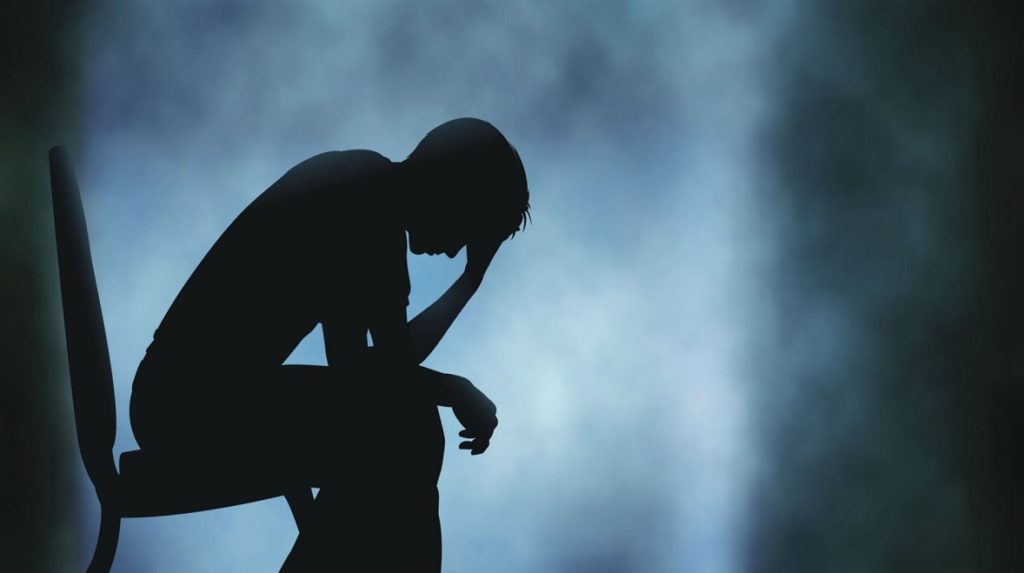Causes of Sorrow in Nigeria
 August 26, 2019
August 26, 2019
During his first Visit to Nigeria in 1982, Pope St. John Paul II delivered series of speeches to different groups. One could extract from these speeches what James Okoye refers to as “the 26 evils of Nigeria”. These are categorized into four, namely, economic, social, political and moral evils.
Economic evils include bribery, corruption, embezzlement of public and company funds; economic sabotage like fuel bunkering; persistent unemployment; over-concern with money making.
Social evils refer to such attitudes like domination over the weak; callousness towards the poor, the friendless and the handicapped; extravagant and unproductive spending; parade of wealth; nepotism; denial of rights of the poor; lack of discipline; seeking to have more rather than “be more”; increase in various degrees of selfishness; malnutrition; illiteracy; reduced life expectancy.
Political evils consist of tribalism and ethnicity; political antagonism; discrimination because of a person’s ethnic origin, religion, or sex; violence; political bureaucracy or red-tape; and unwarranted administrative bottlenecks, among several others.
Moral evils: These concern such unethical conducts like abortion; contraception; divorce; dishonesty, sexual permissiveness; promiscuous sexual prostitution and commercialization even across borders, etc.
Without any categorization, I add the following evils that have ravaged and are still ravaging our country; they include the Boko Haram Insurgency, Insecurity, Kidnapping, Armed Robbery, Pen Robbery, Bribery and Corruption, Unemployment, Negative/Harsh Policies of the Government; Misapplication, Misappropriation and Mismanagement of Resources; Extravagant Spending, sometimes on “White-Elephant Projects; Sycophancy; Insincerity/Dishonesty; Greed or Avarice; Fraudulent Deals, e.g. the “Ghost Worker” Palaver, which has resulted in unending “Screening Exercises”, and lack of payment of salaries for several months, especially in Kogi State; Political “godfatherism”; Religious Bigotry; Misplacement of Priorities; Laziness/Idleness; Lawlessness; Recklessness; Economic Recession, which results from negative policies of the government, characteristic of visionless leaders, etc. We shall now explain a few of these evils, with examples, where necessary.
The Leadership Problem:
There was a wise man named Confucius who lived Four Hundred years before the birth of Christ. The lifestyle of this man was admired by all who came in contact with him; indeed, some of them became his disciples. One day, his wisdom was tested. The story goes like this:
Confucius was sitting under an oak tree in the cool of the day, thinking. Then came the sound of footsteps. Upon looking up, what did he see? Scores and scores of his followers standing round him, each wearing a disturbed front. When he asked what the whole trouble with them was, one of them stepped forward and, opening his mouth, spoke in this manner, “Master, the society is in total chaos. Nothing works right anymore. Man is in absolute state of anarchy, of disorderliness, of meaninglessness, of foolishness, of selfishness, of lawlessness, of laziness, of hopelessness. Yes, man has become a war monger, a sex monger, a money monger! (And I add, a power monger, a beast unto his fellow man, a murderer!) Please, wise master, help us, redeem us. What shall we do? Answer us!”
Confucius answered calmly and with certitude, saying, “The solution is simple—it lies in the rectification of names. When the leader is truly leader, when the lawyer is truly lawyer, when the doctor is truly doctor, when the soldier is truly soldier, when the teacher is truly teacher, when the student is truly student, when the policeman is truly policeman, when the husband is truly husband, and the wife is truly wife, and the child truly child…then, and only then, shall society be restored.”
I have no doubt that the scenario described above fits perfectly into the Nigerian context. Is the entire country not in a state of anarchy, chaos, and disorder? Is the whole country not thrown into confusion? When basic salaries and allowances are not paid for years, for months; when the basic social amenities are lacking; when government institutions are incessantly on strike—right now, all state institutions of this State are on strike—in a nutshell, when all government Parastatals and outfit are in higgledy-piggledy, what expression can be used to describe the experience of the citizenry besides the word “sorrowful”?
The Money-Mongering Problem:
In his first letter to Timothy, St. Paul acknowledges the fact that “The love of money is the root of all evils” (1 Timothy 6:10). As a social/moral evil, money can easily destroy human relationships that took several years to build. It causes the dichotomy between the rich and the poor, the employer and the employee, the powerful and the powerless, the ruler and the ruled, the master and the servant, the affluent and the indigent, etc.
Do you want to know why Nigerians are perpetually corrupt? Why do they persist in giving and receiving bribes? It is because they are crazy about money. Fr. Nicholas Obi explains that:
Even such unhealthy social practices as tribalism, nepotism, sectionalism, favouritism are directly money-related, money-concerned. Because you want money to circulate around you and you alone, you begin, once you are in a position to do so, to rashly exhibit these ills in your dealings with people in such important areas of life as: employment, promotions, contract awards, scholarships, granting of loans, provision of fringe benefits, land allocation, admissions into educational institutions, grading of examination results, recruitment into the Armed Forces, distribution of agricultural inputs, et cetera….”
Describing the madness he refers to as “money-mania”, Fr. Obi is blunt and categorical in his statements. According to him:
The general scramble for money in this country is a worrying phenomenon. If the frantic scuffle for and uneasiness about it were the concern of just the poor and starving lot, one would perhaps contain the irritant scenes. What beats one’s imagination is that the super-wealthy who really have nothing to gain by having more money, are still the very ones who seek it even more furiously. Yes, these continue to make more money, build more houses, purchase more cars, get more clothes…than they need. This is the strangest thing about money—there seems to be intrinsic in it a relish that is ravenous, voracious, insatiable! …
He continues:
….Nigerians…are inflexibly engaged in the business of thinking of ways to make fast money; they are joining secret cults and secret societies in order to enrich themselves; they are sacrificing their own children, blood relations, parents, best friends, wives, husbands…for money; they are four-one-nining every day to get money and property for which they did not work; having sleepless nights because of money; risking their lives by having their stomachs cut open to stock cocaine, or stuffing some…in their private parts, or even swallowing wraps and wraps of it (to be purged intact on arrival abroad…all for money; busy selling…their bodies…for money, sacrificing truth, honesty, integrity, honour, virtue,…on the altar of money….Preparing, in some of our establishments, vouchers every month, for millions of ghost-workers to…get yet more money; insisting on kick backs, all for money; filling our markets with expired drugs and getting more money while killing more people….
Menace of Boko Haram Insurgency:
Boko Haram means the congregation of the people of tradition and jihad which in Arabic means Jama’at Ahl as-Sunnah lid-da wawal jihad—better known by its Hausa name Boko Haram (meaning Western education is sinful or an abomination). It is an Islamic jihadist militant and terrorist organization based in the North-Eastern part of Nigeria, Northern Cameroon, and Niger. It was founded by Mohammed Yusuf in 2002. It seeks to establish a “pure” Islamic State ruled by Sharia Law, putting a stop to what it deems “Westernization,” of that part of the country (Catholic Social Communication Directorate 2014, p. 5, modified). Since 2009, the heinous activities of Boko Haram have been steady till date. Thousands of people have been killed, and several Thousands displaced. Property worth millions of naira have been destroyed.
The On-Going Economic Recession:
Recession is ordinarily defined as the movement backwards of something from a previous position. Economic recession refers to a very difficult time for the economy of a country, where the latter experiences ‘backward movement’; this is particularly the case in a country where there is less trade and industrial activity than it should and where there is high rate of unemployment. It has the following as synonymous phrasal expressions: economic downturn, economic crunch, economic quagmire, etc.
On the eleventh page of The Punch Newspaper of Wednesday, November 11, 2016, Alexander Okere, from Benin, reports Mr. President as saying that with the on-going recession, Nigerians are paying for past mistakes. Under the caption “Recession: We’re paying for past mistakes,” Okere reports that:
“President Muhammadu Buhari on Tuesday blamed the harsh economic situation currently faced by Nigerians on the mistakes the country made in the past. Buhari noted that though the country was blessed with numerous resources, it allowed herself to be confined to a mono economy by paying too much attention on petroleum to the detriment of viable cash crops like cocoa, groundnut, palm oil, palm kernel and hides and skin…. ‘We are blessed with human and material resources. We have made terrible mistakes in allowing ourselves to be cornered into a mono economy and we are now paying dearly for our mistakes. Nigeria saved the money from cocoa, palm oil, palm kernel, groundnut, hides and skin and even started the professional development of petroleum. Once petroleum was discovered and developed in quantity, we threw everything to the dogs. Now, petroleum is diving from an average of $100 per barrel in the last 12 years to between $40 and $50 and we are paying for it. What have we done to our infrastructure—power, rail, road and social infrastructure, education and health? Just check and find out. We became very wasteful.’”
Mr. President, however, emphasized the necessity for all Nigerians to work together to revive the solid mineral sector and agriculture by way of proffering solution to the present recession. According to him, “Now, we have to go back to the land, to solid minerals, and do a lot of savings so that we can leave a better country for our children and our grandchildren.”
From the above statement, it is clear that a mono-economy can never help Nigeria to solve her problems. From its prefix, mono, which means one, a mono economy is the type that concentrates all her energy on developing only one sector of the economy, while all other sectors are neglected. It is like a person pouring all his eggs into one basket or like a trader selling only one commodity or engaging in only one business, come rain come shine! Before the onset of the “oil boom” in the 70s, Nigeria had engaged in developing most of her sectors like the Manufacturing, Agricultural, Mining and Steel, etc. However, as soon as petroleum was discovered, these other sectors were neglected. Consequently, the “oil boom” of the 70s has now become “oil doom” for Nigerians. This is because, besides the fact that people were very reluctant going into developing other sectors, they were also wasteful. In summary, mono economy, wastefulness, laziness, materialism, unemployment, high interest rate, and lack of sacrifice are some of the factors responsible for the on-going economic recession.
What then can be done to ameliorate this ugly situation? The very first and major solution is economic diversification. A diversified economy is the direct opposite of a mono economy, because the former takes into consideration the development of all sectors of the economy. Thus, with diversified economy, Nigeria will be able to eradicate poverty. Countries like Uganda and Kenya already have diversified economies—they do not rely on mono economy like Nigeria that generates her main revenue from petrol. With regard to diversification, Nigeria should hold the following sectors in high esteem, namely Agricultural, Manufacturing and Real Sectors, Mining Sector and other sectors of the economy such as healthcare, education, power, etc.
In an article entitled “Diversifying Nigeria’s Economy: Steady Progress Towards a Non-Oil Economy,” in The Nation’s newspaper of Monday, October 31, 2016, p. 37, the Bankers Committee of Nigeria have been discussing how the economy of Nigeria can be revamped and sustained, through diversification, without concentrating all her attention on oil. The article reports that various schemes are being developed by the Central Bank of Nigeria (CBN) through the Deposit Money Banks (DMBs) to support agriculture. The DMBs promote economic growth, employment creation, import substitution and economic sustainability, among others. In fact, the CBN has contributed over N1.7trn seed funding towards improving agriculture. The government should continue to commit money to producing agricultural products like food crops, and especially cash crops which are mainly for export. Nigeria has very fertile land. This should be used for agriculture; the government should desist from seizing rural community lands and selling them to the rich. There should also be provision of fertilizer to improve crop production and other pest-control chemicals to be used by, especially rural farmers. The government should give loans to farmers and ensure that such loans are refunded with moderate interests within a specified period of time.
Manufacturing, Mining and Real sectors are great sources of income to Nigeria, if Mr. President can spend money on them. These sectors contribute significantly towards a non-oil reliant economy. They include the textile industry in Kano, the Iron and Steel Industry in Ajaokuta, Kogi State, among others. These will definitely reduce the rate of unemployment, in addition to boosting export. The government should reduce the rate of borrowing from external bodies, including World Bank. She should spend money on infrastructure and creation of local industries in order to enhance or guarantee employment, rather than borrowing money at a high interest rate only to spend such money on mere consumption. The government should provide the unemployed with the opportunity of taking loans at low interest rates so as to encourage them to establish small scale businesses. Civil servants who are above sixty years should retire to pave way for the younger ones. This will drastically reduce the rate of unemployment. On the fifty-second page of the Daily Trust of Thursday, November 3, 2016, Sanusi Lamido, former Governor of Central Bank of Nigeria and the current Emir of Kano, encouraged that any borrowing by the federal government should be used to finance production, capital project and not spent on consumption. He added that there was need for economic rebirth, which should begin with having integrity leaders. “Whatever policies the FG puts in place, the world will remain skeptical if there is no integrity. The world will not come to our aid if our leader is not honest and incorruptible….Thus, admixture of good economic policies and leadership of integrity remains the way out of the current economic crises,” he stressed.
The 2016 Second Plenary Meeting of the Catholic Bishops’ Conference of Nigeria (CBCN) was held at Domus Pacis Pastoral Centre, Igoba, Akure, Ondo State, from 8 to 16 September, 2016. Reflecting on the state of the nation, on the second page of its communiqué, particularly with regard to the current economic recession in Nigeria, the Bishops said: “We note the efforts of the Nigerian government towards the growth of the nation’s economy. Yet, the economy has gone into a recession. Many people have lost their jobs, and those who are fortunate to retain theirs are not adequately remunerated and some are not paid as and when due. There is hunger in the land. We therefore urge the government to take proactive and practical steps towards reversing the recession. As a result partly of the fall in the oil prices, it has become inevitable to, without further delay, diversify the economy, engender fiscal and monetary policies, stimulate and mobilize investments, and engage in a productive rather than a consumerist economy. We advise the federal government to consider devolution of powers to create a healthy economic competition in the federating units. We call on Nigerians to moderate their taste for foreign goods, reduce waste and be more prudent in expenditure. In the meantime, we expect the government to quickly evolve appropriate palliative measures and empower, by job creation, the teeming unemployed youth.”
“Getting Out of a Needless Recession” is the title of the article written by Mr. Peter Olorunmola, a veteran Public Commentator and Analyst. This article partly reads , “Should we be poor? “No!” is the answer. We are poor only because we have chosen to be poor. We keep knocking on God’s door praying that He intervenes in our predicament. This, to me, is an unnecessary disturbance and a trespass on His peace. God in his magnanimity has been too generous to Nigeria. Nigeria is God’s Biblical Garden of Eden. He was in His best elements when He created this country called Nigeria. Whatever we asked of Him, He granted us: the people, the land, the weather, plenty of sunshine and rain and all the valuable minerals. But in our jubilation we forgot to ask for one vital thing: good leadership.
But have we never had good leaders before? We most certainly had the Awos, Sardaunas, Zik of Africa, Tafawa Balewa, Osadebe and even Yakubu Gowon as a military head of state. He fought the civil war without borrowing a kobo. Remember this quote: “Nigeria’s problem is not money, but how to spend it”. This was after the war when the Naira was stronger than the dollar and at par with the pound sterling. Nigeria was a lender to the IMF and World Bank then. This leader never built a house of his own even as a Commander in Chief for almost a decade.
Today, Nigeria is broke and fallen from what the authorities called a “Technical Recession” to a full blown recession. He then re-echoed the words of Professor Patrick Utomi that: “This recession is self-inflicted.” People like Soludo, Ezekwesili (Mama BringBackOurGirls) and Sanusi Lamido Sanusi hold this opinion. In any case, all and sundry agree on one thing: this economy is in comma and needs urgent medical attention.
To get out of this hell that has brought us so much hardship never witnessed before in the land, not even during the Abacha regime, this government must take the courage, humble itself and make a U-turn in all directions, politically and economically. The government should put a final full stop to the blame game and get serious with governance. This government simply took the wrong steps when it came. The first of these is to shut down everything, all on-going activities both on the political as well as the economic front. Imagine putting a stop to all construction sites, bridges, roads, rail lines, airport terminals and runways, office accommodations, hospitals—most of these are vital arteries to our economic life. Consider the job losses and the astronomical rise in cost when as must happen the projects are re-visited. Do we also quantify the cost to our economy due to decay arising from such stoppages?
As if this was not enough, consider how long it took this government to constitute a cabinet and when it did, the budget took its turn to wait. First, the budget took wings and was missing. When discovered, its authenticity was in question. Who says we did not bring the recession on ourselves? Remember this budget was termed the intercession to our economic recovery long before the recession ever surfaced. According to the authorities, the over Six Trillion (6 Trillions) Naira monster budget was surely going to bring relief and smiles on the faces of Nigerians. Please, can we at this stage point to one thing, just one, that has been achieved in the budget plan for 2016? And we did not expect the recession? We believe so much in delusion, sophistry and magic!
One area that will surely help is that of paying salaries, pensions and gratuities. These are catalysts for growth as they are a means of spreading wealth. The federal government must be commended in this regard.
The administration should also kick start its tax policies. Given the percentage of rich Nigerians in particular who pay little or no tax there is a large room for improved revenue from this source. Tax incentives and waivers are sources of attracting or protecting investments. The tax law allows it; only it must strictly comply with the law where applied. The Joint Tax Board (JTB) may also want to recommend a review of current tax rate; lower the rate for those at the low income bracket and a little jack up for those at the top. VAT can also go up between 1 and 2 percent for certain items.
Finally, we all know that this nation is a mono-economy that depends almost entirely on one commodity—oil. This is concentrated only in one region of the country, the Niger Delta area. Given the region’s history, its volatility, its cry for recompense, it was only wise that any succeeding administration would have consolidated on the gains made to bring calm and relative peace to that region. This government has made mistakes and I call them deliberate by their nature. This region is our proverbial “geese that lay the golden egg”. We must not think that we can borrow ourselves out of recession. That would be wrong because the means to achieve this is right here with us. All we need do is to bring peace back to the Niger Delta. It does not matter how much oil sells for. If we can get the production up to our maximum, we will reap enough money. Iran is a good example. Coming out of sanctions only recently, they are already pumping more than four (4) million barrels of oil into the market. With peace we can achieve this. There was wisdom (a lot of it) in the former government contracting the safeguard of the pipelines to ex-agitators for one or few billions. Juxtapose that to the trillions that come in for government; that sounds like good and wise economics to me. The road to peace particularly in the Niger Delta area and indeed all the corners of the country is our sure road to a quick recovery and prosperity (Mr. Peter Olorunmola’s article, modified).
Kidnapping Problem:
Miss Josephine Enebe’s article entitled “Kidnapping: A Handmaid of Injustice” was published in the February Edition of The Light Monthly Newsletter of Lokoja Diocese. This writer, a columnist, concludes that injustice gives birth to kidnapping. Her article partly reads thus:
‘The summary of this write-up is that injustice gives birth to kidnapping. This can be explained in two ways. First, kidnapping is a form of injustice from the kidnapper to the kidnapped, while the government’s lackadaisical attitude toward creating job opportunities for the youth is a form of injustice to the kidnapper. Although very wrong, the kidnapper could attempt to defend himself by saying that he actually took to kidnapping as a means of survival because of unemployment. This is the reality on ground. In other words, while it is unjust for the government not to create jobs for her subjects, it is also unjust for some of her subjects to take to kidnapping as a means of survival. Let kidnappers be aware that the Holy Bible is vehemently against kidnapping. The Book of Deuteronomy warns, “If anyone is found kidnapping one of his brothers, one of the sons of Israel, whether he makes him his slave or sells him, that thief must die. You must banish this evil from your midst” (Deuteronomy 24:7).
To arrest the twin problem of injustice and kidnapping, I strongly suggest that the federal government should create employment opportunities for the teeming population of the young generation. After all, it is a truism that youth are the leaders of tomorrow. How can they be tomorrow’s leaders in the present situation of joblessness?
Furthermore, those at the helms of affairs should make efforts to be outstandingly transparent and just, and not the opposite.
The three arms of government should strictly perform their various duties. For instance, the federal government should see creation of jobs as her bounden duty. If jobs are made available, the youth will think less of kidnapping. If justice is dispensed by the judiciary and kidnappers are made to face the full wrath of the law, this will lead to a drastic reduction in the “business of kidnapping”. Salaries should be paid as promptly as possible.
Finally, even though government’s failure to provide employment for the youth is injustice, this does not give the youth a license to kidnapping. Kidnapping as a means of survival is not justifiable. The youth can engage themselves in “self-employment” as a means of survival. Indeed, “self-employment” may be the eventual solution to kidnapping in Nigeria. The government should provide a fertile ground for the youth to engage in self-employment. The government can do this by lending money to the youth to set up businesses for themselves. Such money should be paid at very minimal interest rate over a specific period of time.’
The Education Sector
The Nigerian educational system is an eyesore; it is nothing to write home about! To say the least, it is a bastardized sector, because it is characterized by incessant strike actions, unqualified teachers, inadequate teaching aids, unfriendly teaching environments, examination malpractice: this latter manifests itself in forms of real and direct “cheating” in the examination hall, plagiarism (that is, a situation where a student copies directly from a fellow student’s project or thesis); and what higher level students refer to as “sorting,” that is, giving money to a lecturer in exchange for high scores; and impersonation, a situation where a student writes examinations for a fellow student, etc.
In terms of physical structures, our educational system is in shambles. Not only that the buildings are dilapidated, there are no good pieces of furniture on which to sit for comfortable writing, etc. As regards academic performance, this is better left unsaid! This is because, given the negative scenario painted above, students cannot perform creditably well, academically. The consequence is that Nigerian certificates are not recognized outside the shores of this country. No wonder, then, the children of the rich and well-to-do study abroad, with all the comfort required to perform brilliantly. Fr. George Ehusani’s words depict the deplorable state of the education sector in Nigeria. According to him:
The educational system in Nigeria has virtually collapsed. While the children of the rich and powerful are sent to elite schools and colleges at home and abroad, those of the lowly class are left to roam the streets, with no access to knowledge or promise of gainful employment. A number of universities are shut for nearly half of the calendar year. When the lecturers are not on strike for poor pay and unbearable conditions of service, the students will go on rampage to protest the shortage of water or electricity on the campus. In some states of the federation, secondary schools are shut for a whole term of twelve weeks, and no one cares about the lasting consequences of this on the developing young people and the future society. The few months of the year when our young people are in school, the conditions under which they study are pitiable. In many of the public schools most of the required infrastructures for learning are lacking. The students themselves not only lack books and study equipment, but they are often under-nourished and lack basic healthcare facilities.
By comparison, Fr. Ehusani continues his description thus:
Whereas their counterparts in the degenerate public schools often have to sit on the floor under (leaking) roofs for their lessons when once in a while schools are in session, the children of the wealthy few often enjoy air-conditioned classrooms in very decent environments. They are very well fed, and have adequate recreation in school and at home, and within Nigeria and sometimes enjoy leisure outside Nigeria. They live in a different Nigeria and are often out of touch with our present-day realities….
The Health Sector
The health sector is not better than the education sector. Fr. Ehusani again remarks briefly in this direction, saying:
Hospitals lie fallow and overgrown with weeds due to disuse. This is not because Nigerians are no longer sick. It is because there is no money to run the hospitals, to buy drugs, and to pay the doctors and nurses sufficiently. Thus, even though they have built numerous Teaching Hospitals, Maternity Centres and Rural Clinics, these structures remain a white elephant, while Nigerians die in their thousands every day of (otherwise) preventable and curable diseases.
Non-Payment of Workers’ Salaries/Incessant Strike Actions
One of these two evils gives birth to the other. Non-payment of workers’ salaries, arrears and some other welfare package often results in repeated industrial action. Some civil servants in this State, like some other States of the Federation , have not been paid for several months. As I speak to you , all state-owned institutions of this State are on strike. Not only the schools, but sometimes, health workers are on strike. Not only in this State, but sometimes these institutions even embark on nationwide strike action. It is not that the money for the payments is not there, but that the authorities concerned have bluntly refused to pay. Such money is either misappropriated or embezzled. May God deliver us from evil!
Unrighteous Living:
In a chapter of his book titled “The Journey to Suffering”, Sam Aweda notes, with regard to Nigeria, that our refusal to obey God’s commandments and do His will is what has brought Nigerians the untold hardships we experience today. He says, “Our reckless, irresponsible and greedy behaviour…and the reckless, irresponsible and greedy behaviour of those who govern us lead…to our fall from grace to grass.” He then cites some examples of those who cause us sufferings and sorrow in this country to include: “Any contractor who did business for the Government at inflated cost or who colluded with the Government or its staff to defraud the Government is guilty.” He says, “Any employer who takes the advantage of the general situation of difficulty in the country to cheat, oppress, pay its staff poorly or refused to pay salaries as at when due is a culprit and he is guilty.”
In his book, The Religious Life Within a Christian Vision of Reality, Joseph Mattam (SJ) acknowledges the fact that most sufferings on earth are caused by humans. To quote him verbatim:
Most of the evils, like slavery, wars, colonialism, casteism, slums, illiteracy, displacement of peoples from their own habitat, various forms of conflicts and their consequences, hunger for the millions, are all caused by humans. We may safely say that at least 98% of sufferings are caused by humans themselves. Even the cases like children born handicapped, with defective limbs, etc. are due to environmental pollution, exposure of the mother to radiation, adulterated food and medicines, alcohol, drugs, tensions, fear, anxiety, etc. What humans, their actions and attitudes cause are by far the greatest amount of suffering and hence we need not look for any other explanation—obviously, humans will have to solve them. Human error is a major factor in most of the accidents which kill thousands of people each year. Slums, poverty, and malnourishment of millions are mostly effects of the human-made economic and social systems and structures that impoverish the poor and fatten the rich.
He notes that even some natural calamities have remote human causality. Floods, for instance, are avoidable by dredging or deepening of the rivers and building strong embankments, etc.
What should be our response to the problem of suffering? He answers that all sufferings, whether man-made or natural, are challenges to us to be more loving, creative and free. He explains further, saying, “This earth is our ‘homework’; we have to better it, make it a place good for all. We may make it a paradise for all, or only for a few, and a hell for most—it is all up to us humans. All progress in the field of medicine, for example, has happened because someone…responded to a suffering situation creatively and with love.”
 Guy Wilkins
Guy Wilkins Larry Reed
Larry Reed Roxanne Holland
Roxanne Holland Bridget Kennedy
Bridget Kennedy Sally Mendoza
Sally Mendoza